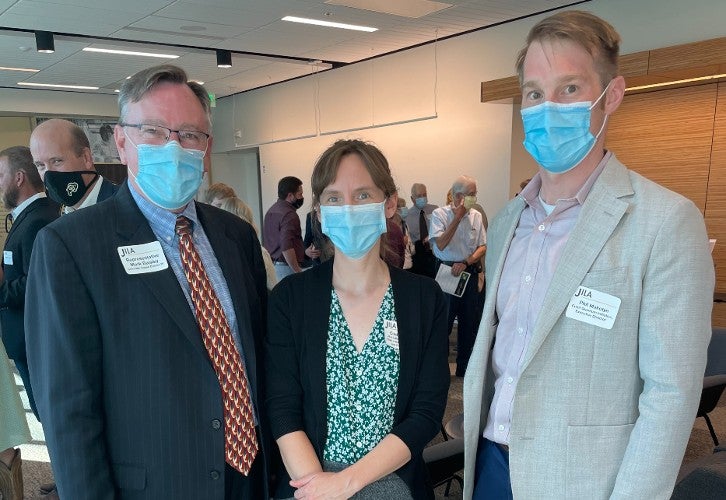Get updates on federal actions from the CU System office.
2022 State Legislative Preview
The 2022 State Legislative Session began on Wednesday, January 12. This year our state government relations team will continue to focus their efforts on state support for higher education through the budget, capital development and policy initiatives that benefit our students, faculty, and staff. It is also an election year so there will be a major focus on state-wide issues such as criminal justice, public safety, collective bargaining, and clean energy. Workforce needs will be a primary theme during the 2022 session, and higher education is sure to play a critical role.
Spending of federal stimulus dollars will also be at play as recommendations from committees that met during the interim become legislation. Our team closely monitored the HB21-1330 Student Success and Workforce Revitalization Task Force which had a specific focus on higher education. The Task Force was allotted $90 million to create transformative change across higher education and address equity gaps in the state and released its final report and recommendations to the legislature on December 18, 2021.
Below is CU-initiated legislation the State Relations team will focus on this session:
- Displaced Aurarian Scholarships – On November 4, 2021, the CU Board of Regents approved the permanent expansion of the Displaced Aurarian Scholarship. Under the new resolution, CU Denver, Metropolitan State University of Denver (MSU Denver), and the Community College of Denver (CCD) will offer tuition-free education to all direct descendants of Aurarians who were forced to relocate to build the Auraria Higher Education Center (AHEC). We are seeking additional state support to build upon the institution’s scholarship fund investment.
- HB 21-1220 Remove Barriers to Educator Preparation - Seeks to reduce barriers to entry for aspiring teachers to address the growing teacher shortage and develop a more diverse educator workforce. The bill creates a new multiple measure approach to licensure, which includes development of a performance-based portfolio pathway. This pathway is key to our students who have challenges passing the Praxis exam, which disproportionately impacts underrepresented students. It also provides state supported residency stipends for Pell-eligible students in addition to funding for wrap-around services to help students along the pathway enter the profession.
- We are also working with the legislature to identify key opportunities with federal stimulus money, including support for CUbit Quantum Initative.
- All four campuses have been engaged in drafting a Rural Healthcare bill. Led by Mark Deutchman, MD, Director of the University of Colorado School of Medicine’s Rural Program, the bill concept aims to build the healthcare workforce in underserved rural communities in Colorado. Currently the School of Medicine’s existing rural track program serves 20 towns in rural counties across the state. This initiative will add various healthcare providers to the existing infrastructure, including nurses, dentists, physical therapists, physician assistants, counselors, psychologists, and other health professionals. These specialties will provide a welcome addition to targeted communities with the current severe shortages in nursing and mental health services. The bill will likely include student scholarship and support for living expenses, in addition to covering administrative costs.

Representative Mark Baisley (R- Roxborough Park), JILA Fellow Cindy Regal and Cubit Quantum Initiative Executive Director Phil Makotyn posing at a JILA (Joint Institute for Laboratory Astrophysics) celebration reception
CU Office of Government Relations






Add new comment